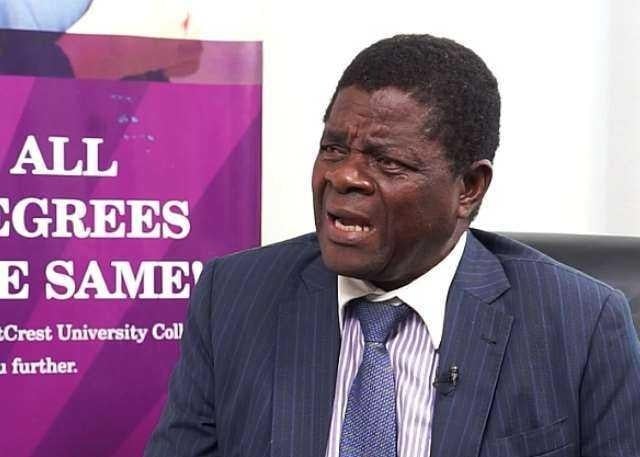The appointment of Chief Justices under the administration of former President Nana Addo Dankwa Akufo-Addo has sparked controversy, with accusations of constitutional breaches and disregard for established conventions. Kwaku Ansah Asare, former Director of the Ghana Law School, has leveled pointed criticism at Akufo-Addo, alleging a pattern of bypassing senior Supreme Court justices in favor of more junior colleagues for the role of acting Chief Justice. This practice, Asare argues, deviated from the established norm of appointing the most senior justice to fill the position on an interim basis whenever a vacancy arose. He contends that Akufo-Addo’s actions not only disregarded constitutional convention but also undermined the seniority principle within the judiciary. Furthermore, Asare characterized some of the appointments as the elevation of “babies” to the esteemed office of Chief Justice, implying a lack of experience and potentially compromising the integrity of the judicial system.
Asare’s critique centers on the assertion that Akufo-Addo “threw away the Constitution,” which, according to his interpretation, mandates the appointment of the most senior justice in cases of vacancy. This interpretation, however, needs further scrutiny, as the Constitution doesn’t explicitly dictate such a procedure. The practice of appointing the most senior justice has been a convention, a long-standing tradition, not a legally binding requirement. While conventions play a vital role in the smooth functioning of government, they don’t hold the same legal weight as explicit constitutional provisions. Nevertheless, Asare’s argument underscores the importance of upholding such conventions to maintain stability, predictability, and respect for seniority within the judiciary. The perceived disregard for this convention raises concerns about potential motivations and the possible erosion of trust in the appointment process.
In contrast to his criticism of Akufo-Addo, Asare lauded former President John Dramani Mahama for adhering to the convention of appointing the most senior Supreme Court justice as acting Chief Justice. He presented Mahama’s approach as a model of constitutional propriety, highlighting the importance of respecting established practices in judicial appointments. This contrasting portrayal serves to emphasize Asare’s disapproval of Akufo-Addo’s methods while underscoring the value he places on adherence to convention. By drawing this comparison, Asare implicitly advocates for a return to the traditional approach to ensure consistency and avoid potential perceptions of favoritism or political maneuvering within the judicial branch.
The specific instance that triggered Asare’s renewed critique was the recent appointment of Justice Paul Baffoe Bonnie as Chief Justice. While the details surrounding Justice Bonnie’s appointment are not fully elaborated upon in the immediate context of Asare’s comments, it presumably represents another instance where the convention of seniority was allegedly disregarded. This appointment, occurring even after Akufo-Addo’s tenure, seemingly reinforces Asare’s concerns about a potential trend towards overlooking senior justices. It’s crucial to analyze the circumstances of Justice Bonnie’s appointment and assess whether it truly deviated from established norms or if other factors contributed to the decision. A thorough examination of the appointment process and the qualifications of the appointed Chief Justice is essential to fully understand the context of Asare’s critique.
The broader implications of Asare’s accusations extend beyond individual appointments to the overall health of the Ghanaian judicial system. The perceived politicization of judicial appointments can erode public trust in the impartiality and independence of the judiciary. Maintaining the integrity of the judicial branch requires a transparent and consistent appointment process that prioritizes merit and adheres to established conventions. While the executive branch plays a role in judicial appointments, it’s essential to strike a balance that respects the judiciary’s autonomy and avoids the appearance of undue influence. Any perceived manipulation of the appointment process can undermine the judiciary’s credibility and its ability to function as an independent check on the other branches of government.
Moving forward, it is essential to engage in a constructive dialogue about the appointment process for Chief Justices and other high-ranking judicial officials. This dialogue should involve legal scholars, members of the judiciary, and representatives from the executive and legislative branches. A comprehensive review of existing laws, conventions, and best practices can help clarify the appointment process and ensure that it aligns with the principles of fairness, transparency, and judicial independence. Ultimately, the goal should be to establish a clear and consistent framework for judicial appointments that safeguards the integrity of the Ghanaian judicial system and upholds the rule of law. This requires a commitment to respecting both the letter and the spirit of the Constitution, as well as the established conventions that contribute to the smooth functioning of the judicial branch.


